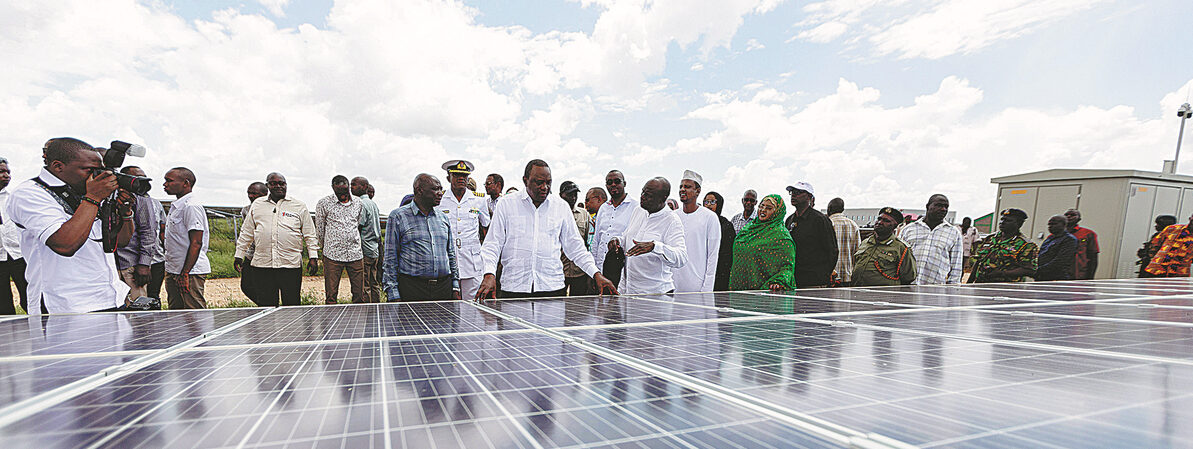Date Published: June 17, 2024.
Development Reimagined’s China Africa Climate Action Tracker is an interactive database tracing China’s climate footprint in African countries since the announcement of the China-Africa Climate Declarations during the 8th FOCAC in Nov 2021, with regular updates leading up to the end of 2024.
Discover the interactive database below.
By the end of 2024, 155 projects were tracked by the Tracker,
- with 37 projects ready for operations and the rest are in progress or contract-signed
- Renewable energy projects contributed 65.8% of the total and reached 102.
- Southern Africa attracts the most projects covering 32.3% of the total, while Nigeria, Kenya and Zambia are the top 3 destinations.
- 122 projects’s EPCs are delivered by Chinese companies, with 25 projects among them are also equipped with investment, loan or aid from China.
Discover visualized insights here.
Appendix: Methodology and Key Criteria Definitions
“Climate Actions” are defined as profit (Investment, EPCs, Equipment supply) and nonprofit activities (Aid, Technology Transfer) that involve Chinese stakeholders to address climate change issues in Africa.
Major tracking sources include official press releases from stakeholders, industry websites (e.g., Belt and Road Project Portal, China International Contractors Association), and global media outlets.
A. Project Profile
Reporting Date: indicates when the project information was published online
Country and Region: specify the project’s location
Categories
- Renewable Energy: hydropower, wind, solar, biofuels, biomass and waste, marine, and geothermal energy projects. The installed capacity of energy projects was also tracked under “Installed Capacity.”
- Clean Technology: the business that reduces negative environmental impacts through energy efficiency improvements, including energy storage, grid management, sustainable materials, and other technologies that measure, report, and improve substantiality impact
- Clean Transportation: sales and manufacturing of power batteries, electrified vehicles (cars, buses, and railways), high-speed railways, and hydrogen vehicles, as well as other emission reductions in intermodal shipping.
- Climate-friendly Infrastructure: infrastructure projects that contribute to climate mitigation and adaptation actions in Africa, including environmental-friendly agriculture projects, climate-smart cities, and forest investment
Project Status
- Contract signed (announcements of finance secured or EPC awarded)
- In progress (under construction and testing)
- Operation Ready (construction finalized or already under operations).
Find detailed information in “Project Details.”
B.Type of Engagements and Finance portfolio
“Chinese entities engaged” and “Africa entities engaged” list all stakeholders exposed in the project’s public announcements, including some of the financiers, owners, and contractors. Each cell may cover multiple entities.
The type of engagements that Chinese stakeholders offered was categorised by the filter “China Engagement” consisting the mix of EPCs, Investment, Loan, Equipment supply, Technology Transfer and Aid, leading into 11 different packages. For example, certain projects involving different Chinese stakeholders providing loans, EPCs, and equipment, were identified into one case.
“Finance Source” roughly implies the entities providing the loan/finance/aid to the project, with significant categories being Africa, China, Rest of World (other bilateral or multilateral financiers, including MDBs), and Multilateral (more than two different entities mentioned above contributing to the project).
“Finance Amount” and “Finance Portfolio” cover more details about finance. Please note that only 98 projects in this tracker cover this term due to limitations on information disclosure.
Limitations
- Data Collection: Our team mapped, collected, and cleaned the project’s data manually, which might lead to missing information. Please feel free to contact us if you want to contribute to the projects.
- Analysis Granularity: The granularity of project information is limited due to the constraints of public information. For example, finance details of some projects are missing due to exposure limitations.
- The complexity of engagements: The data might not reveal all the different ways that China is involved in African climate projects, especially some led by stakeholders from Africa or international institutes lacking information exposure.
If you have any questions or want to discuss the database, please reach out our Climate Program Manager at yikefu@developmentreimagined.com


